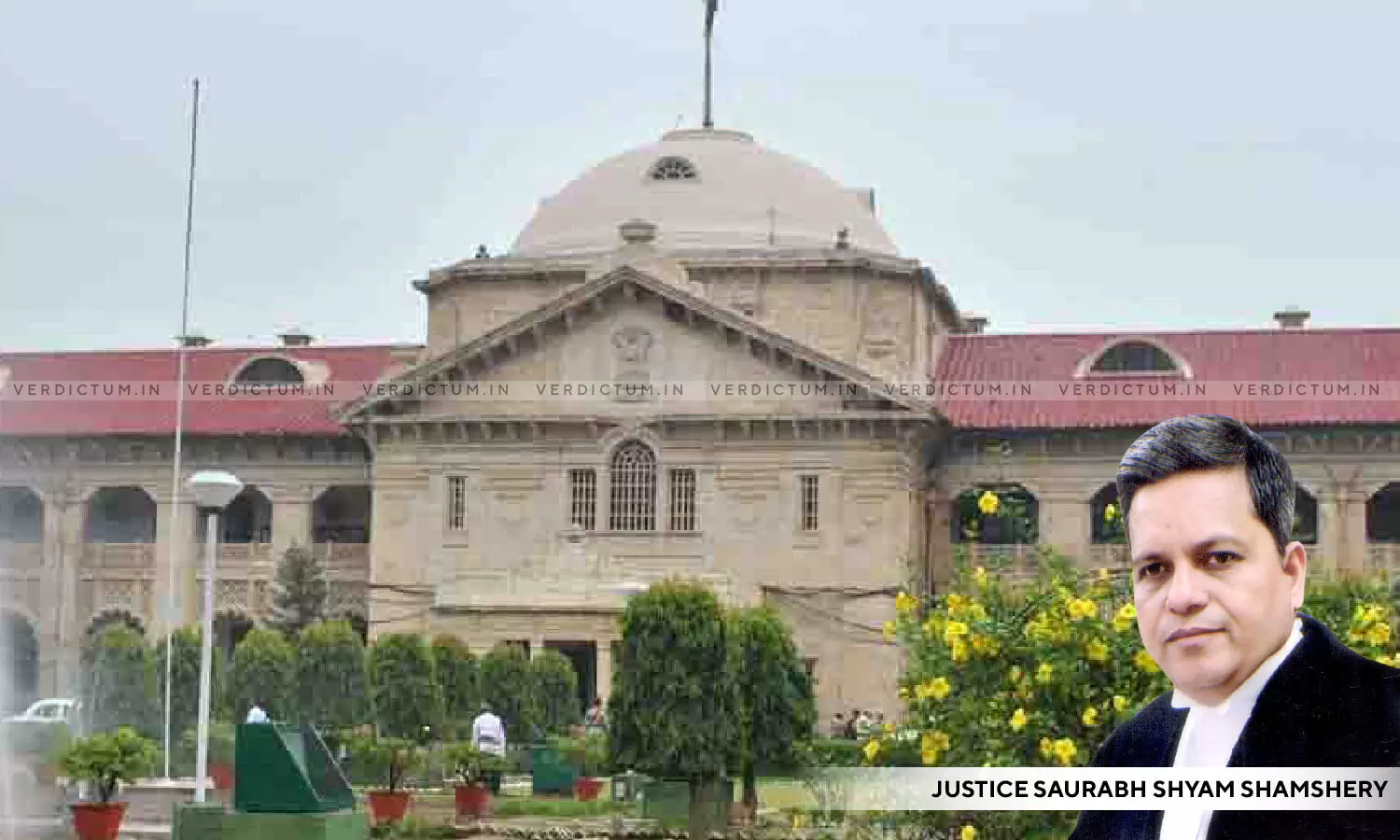
DNA Test Can Be Ordered Only In Extraordinary Circumstances When There Is No Other Legal Basis To Determine Parentage: Allahabad HC
 |
|The Allahabad High Court has held that DNA test can be ordered only in exceptional cases when there is no other legal basis to determine Parentage.
The Court was deciding a case that arose out of proceedings initiated under Section 9A (2) of the Uttar Pradesh Consolidation of Holdings Act, 1953 (in short, “Act, 1953”).
A Single Bench of Justice Saurabh Shyam Shamshery observed, “As held in Aparna Ajinkya Firodia (supra) order to conduct DNA test could not be passed in a routine manner and it has to be passed only in extraordinary circumstances when there is no other legal basis to determine parentage of person concerned and since in the present case there is a document which is recognized to be sufficient legal proof of determination of date of birth, i.e., matriculation certificate, therefore, no circumstance exist to pass an order for DNA test.”
Advocate Onkar Singh appeared for the petitioners while Advocate Abhitab Kumar Tiwari appeared for the respondents.
Facts of the Case -
The parties did dispute the pedigree as far as relations were concerned that land in dispute was in the name of a man, who had three sons. The eldest son (Shakeel) had married with the petitioner no. 1 in the year 1997. However, unfortunately he died and it was the case of petitioner-1 that out of wedlock of Shakeel, a daughter was born (Petitioner-2 herein) whereas case of contesting-respondents was that the petitioner-1, after death of her husband, remarried and petitioner-2 was born out of wedlock with her second husband.
It was further case of contesting-respondents that since petitioner-1 did take care of her husband during his life time, therefore, he executed a Will in favour of contesting-respondents, i.e., his two brothers. The petitioners had lost before all the three authorities, i.e., Consolidation Officer, Settlement Officer of Consolidation and Deputy Director of Consolidation. Hence, the matter was before the High Court.
The High Court in view of the facts and circumstances of the case said, “… matriculation certificate or birth certificate issued from School would be considered to be best evidence to determine date of birth of a person and in the present case according to certificate of matriculation date of birth of Petitioner-2 is 04.05.1999. Therefore, the findings returned by all the three authorities that on the basis of birth date, Petitioner-2 cannot be considered to be the daughter born out of wedlock of Petitioner-1 and Shakeel, since admittedly he died on 27.07.1997, i.e., about one year, 08 months and 07 days before Petitioner-2 was born, cannot be considered to be perverse. Nothing has been brought on record that date of birth mentioned in the document available at School was different.”
The Court further noted that merely that the name of Shakeel was mentioned as father in certificate would not contradict medical opinion that considering gap of 615 days between death of Shakeel and date of birth of Petitioner-2, he could not be her father.
“… any challenge to “Will” at behest of petitioners has also no basis. A factor that Petitioner-2 (now major) has independently never taken any step to claim her right, if any, over land in dispute, also held to be against the petitioners”, added the Court.
Accordingly, the High Court dismissed the writ petition.
Cause Title- Smt. Mobin and Another v. Dy. Director of Consolidation and 6 Others (Neutral Citation: 2023:AHC:216137)